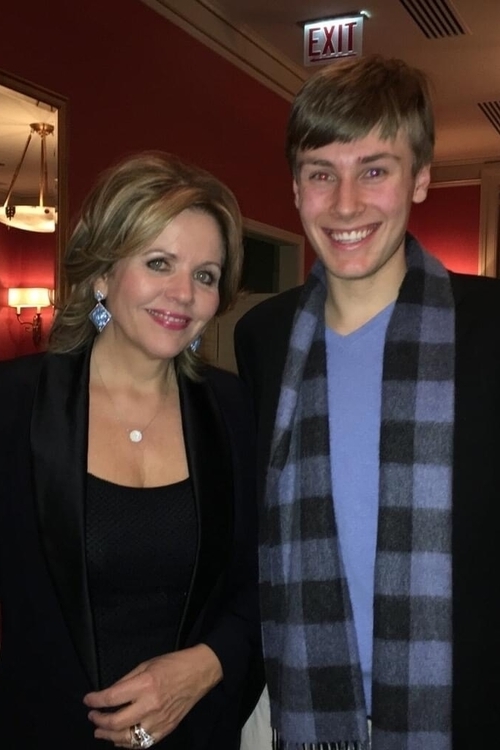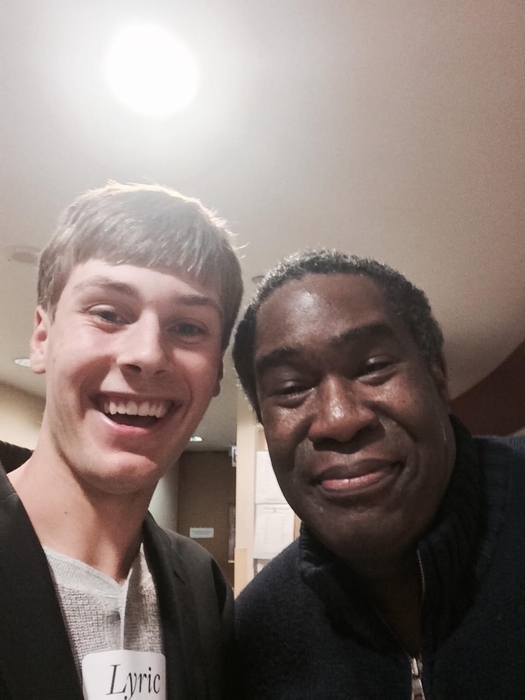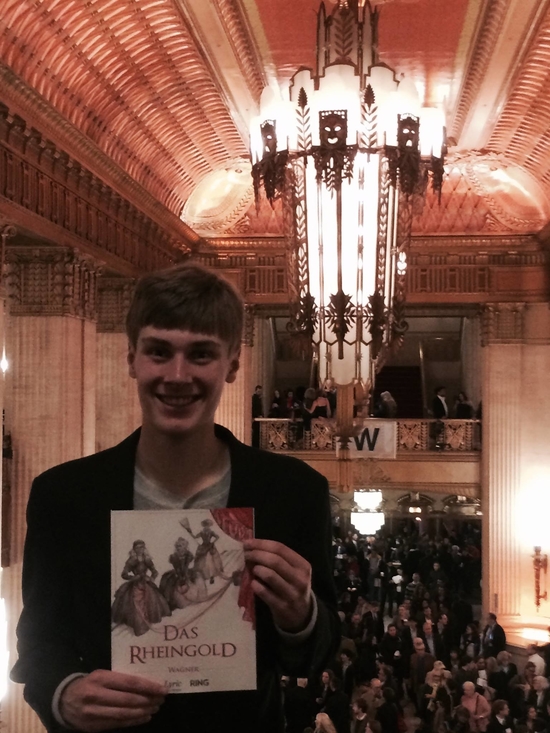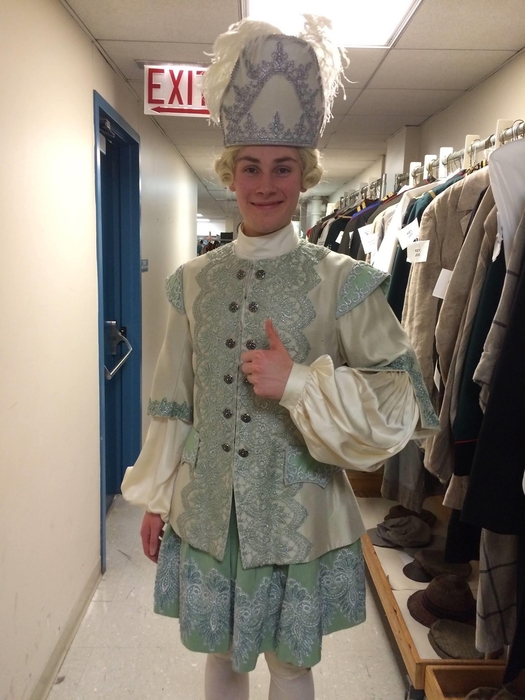August 17, 2020
From the Opera House to the writing room: Carson's Lyric Story
Carson Cook loved music and singing from a very young age—he was even a season ticket holder at Lyric as a freshman in high school. Carson’s experiences as a member of Lyric’s Youth Opera Council and as an audience member at Lyric helped solidify his desire for a career in vocal performance, and even inspired him to write an opera libretto at the age of 22.
While Carson took private voice lessons, attended summer vocal programs, was in his high school choir, and experienced all the art available in Chicago, he was still hungry for more. A friend of Carson’s was a member of Lyric’s Youth Opera Council and invited Carson to visit a council meeting with him. After attending a few Council meetings as a guest, Carson fell in love with the group and was accepted into it for his senior year of high school. “Every experience with the Youth Opera Council was incredible,” Carson recalls. “It was inspiring that Lyric took us so seriously. They wanted to have us involved, and they provided opportunities that I wouldn’t have had otherwise. We got to learn so many different sides of the house and the business; we got to meet so many singers and learn so much about every aspect of opera.”
He remembers that they got to eat pizza with the orchestra after a rehearsal once. “A friend and I were talking to a few of the orchestra members when we looked across the room and I asked, ‘Hey, is that Renée Fleming?’ and it was! We got to meet her and talk to her! Where else does that just happen?”

Carson with Renée Fleming backstage at Lyric.

Carson and Eric Owens backstage at Lyric.
For Carson, Lyric was an escape, a safe community; “I got to know the people I sat by in the opera house, since they were in the same season ticket series as me, and the other members of the Youth Opera Council—everyone was so open and forward thinking, you could really feel the warm vibe in the house, with the staff, even backstage. The people I met through Lyric were so generous and reminded me that opera is a perfect way to relate to other people.”
Having earned a bachelor’s degree in vocal performance from the San Francisco Conservatory of Music, Carson graduated into a global pandemic with an unwavering passion for the art form of opera. He began writing a somewhat autobiographical libretto about a teen struggling with learning difficulties and mental health issues who aspires to be an opera singer. William Hicks, a world renowned vocal coach, pianist and conductor with whom Carson had studied, became his co-librettist.
“Carson was a student of mine at a summer program and from our first session together, I thought he was incredibly talented,” William says. “We stayed in touch after the program and he came to me one day with two paragraphs written of this libretto—next thing I know, the two of us have a 65-page script written.”

Carson in the Daniel F. and Ada L. Rice Grand Foyer before a performance of Das Rheingold in the 2016/17 Season.
After months of work, Carson and William invited opera professionals to a few Zoom readings of the libretto, and received valuable feedback from directors, actors, and agents. They even enlisted soprano Harolyn Blackwell and bass Samuel Ramey to read the roles of Teddy’s grandparents (Teddy is the main character struggling with learning differences; Carson read that central role).
“We are very very fortunate that everything lined up,” William notes. “Neither Carson or I had ever written anything before and it just seemed to flow so easily for us. Everyone involved seemed to bring someone else in who was excited about the project.” Perhaps it was the newfound free time allotted to artists, or perhaps it’s the inherent generosity of the opera community, but Carson and William received overwhelming support from artists and creators across the country to help fine-tune their work. “We got every cast member we wanted to read the roles,” Carson marvels. “Nobody said no; that never happens. It’s pretty remarkable.”

Carson backstage at Lyric in costume as a supernumerary in Der Rosenkavalier in the 2015/16 Season.
Carson has high hopes for this project and hopes that the contemporary libretto will resonate with people who have experienced learning difficulties, those who know people who have, those who love opera, and those who have never seen opera before. “It’s a story about a young man who is struggling to become an opera singer because of these personal challenges...but it can be applied to most everyone, not just in the music industry,” Carson says. “It’s about daily life and daily struggles. The main goal is to help people look at learning challenges differently. We shouldn’t judge people so quickly; hopefully this work can spread that message.
“We took experiences that both of us have been through and experiences that we’ve both seen, and we put them into this book,” Carson adds. “It’s been such a healing process for me to write this and put all this tough stuff into the work. It makes me think, ‘Wow, now I didn’t go through all of that for nothing’ because I’ve created something that will hopefully be meaningful to other people.”
Being in the Youth Opera Council allowed Carson to know that it was okay to dream big, and that opera can be for everyone. “At the end of my libretto, we see Teddy able to reach dreams and goals that he never thought he could have, just like me,” Carson says. “Having the opportunity to learn and grow at Lyric helped to inspire me to write the piece.”
What’s next for Carson? “First we need a composer, then the sky's the limit for this opera. We can see it becoming a play or even a movie—there are so many directions that it could go. I’ve enjoyed this process a little too much, actually, and I’m already starting to think about the next opera I could write!”
Learn more about Lyric's Youth Opera Council and how you can support the group of teens at https://www.lyricopera.org/support/donate/.
